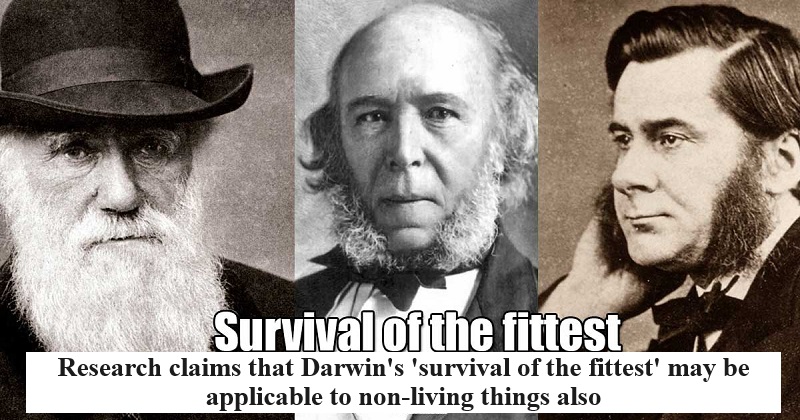
Darwin’s well-known principle of “survival of the fittest” has long been regarded as a fundamental law of nature, applicable solely to living organisms. However, recent research suggests that this concept may extend its relevance to non-living entities, including minerals, stars, and hurricanes.
In the realm of the non-living world, scientists and philosophers have proposed the existence of what they refer to as nature’s “missing law.” They posit that this yet-to-be-determined law governs non-living systems similarly to how Darwinian evolution’s “survival of the fittest” law guides the living world. The underlying idea is that non-living systems, such as minerals, stars, and hurricanes, consist of multiple components that can combine in various ways. Some of these configurations persist or endure longer, while others do not. This phenomenon is believed to be influenced by a set of selection pressures.
Dr. Michael Wong, the lead author of the study conducted at the Carnegie Institution for Science, emphasized the universal applicability of this proposed law. He noted that their concept extends to both static systems like minerals and dynamic systems like hurricanes, stars, and life.
The research, which was published in the Proceedings of the National Academy of Sciences, introduced the idea of three distinct selection pressures that influence evolving systems: stability, novelty, and the ability to sustain fundamental processes. The researchers explain that the information function of a system will increase, signifying system evolution, when many different configurations of that system are subjected to selection for one or more functions.
Wong further highlighted the notion that the cosmos is fundamentally rooted in function, underscoring the critical relationship between emerging functions and their environmental context. The research encourages contemplation about how human activities impact the long-term sustainability and prosperity of our evolving biosphere and society.
In summary, this study posits the existence of a fundamental law for non-living systems, similar to Darwin’s “survival of the fittest,” with implications for understanding the evolution of both living and non-living entities and their interactions within our biosphere.

Post Your Comments